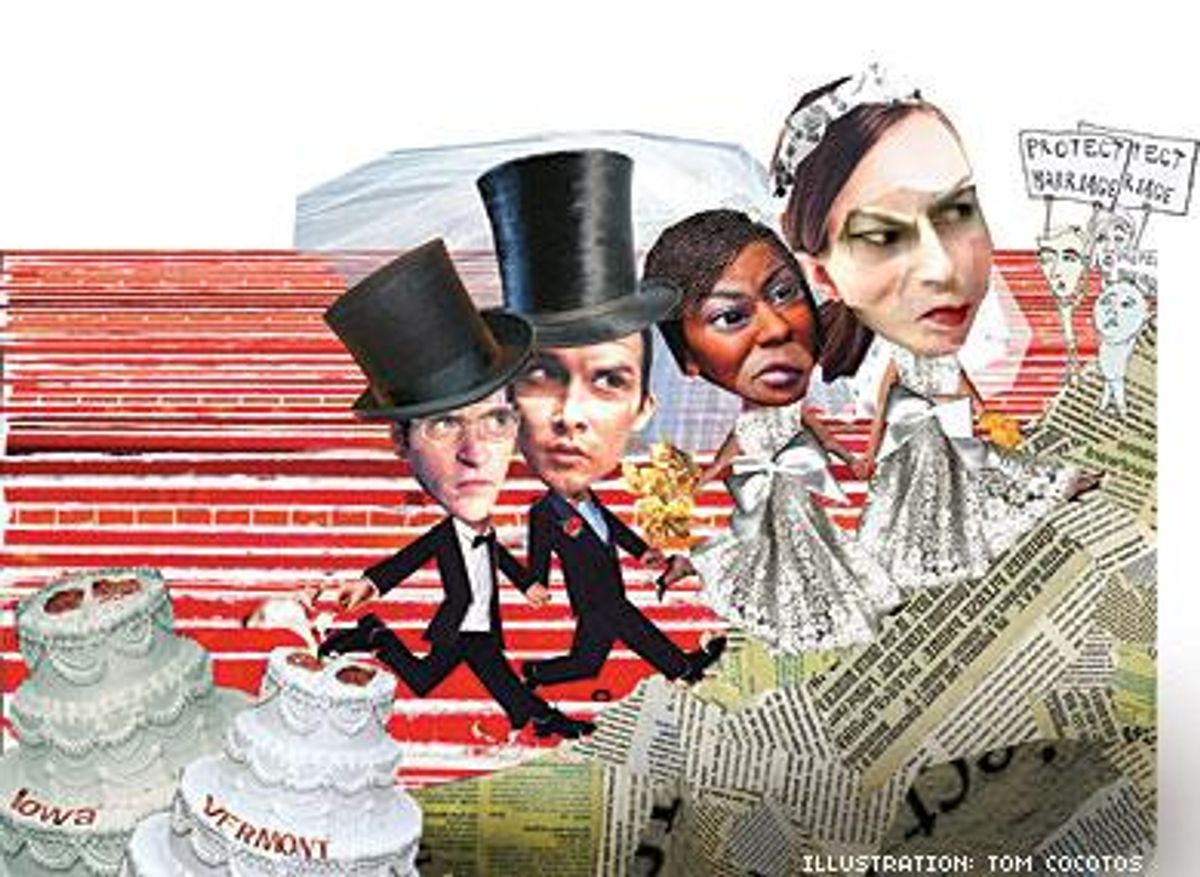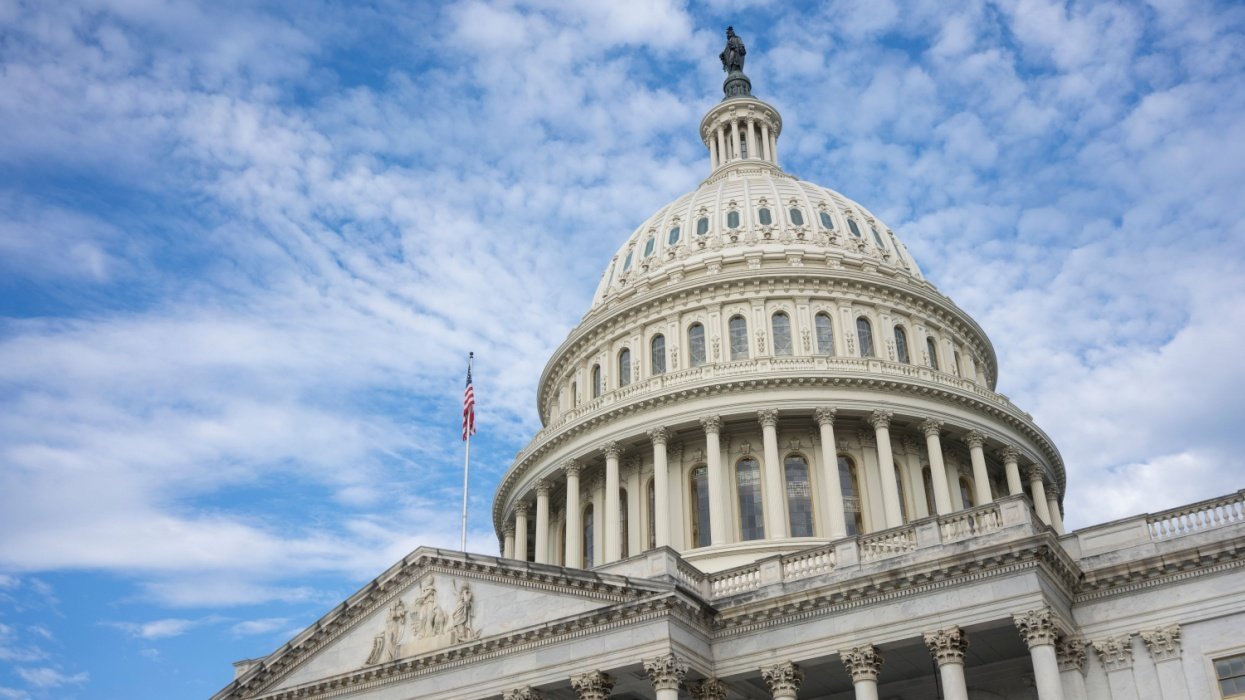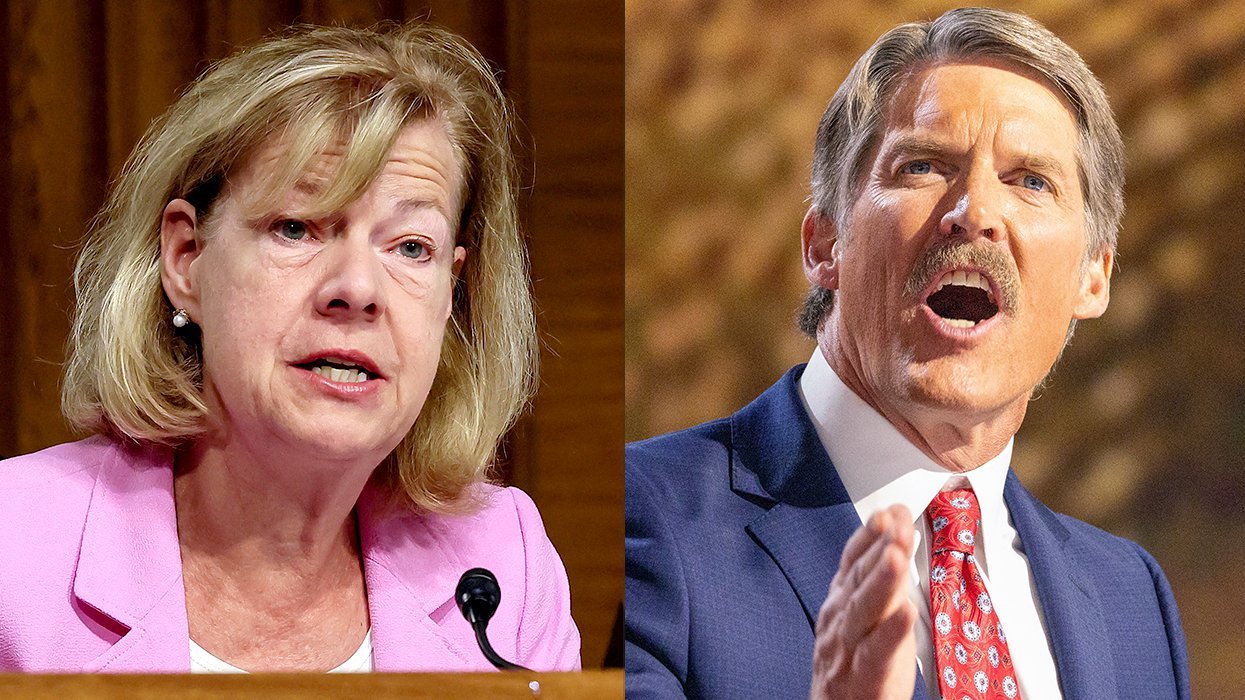As we mark the 40th anniversary of the Stonewall riots, which were an expression of mass liberation erupting naturally and spontaneously among a crowd on the street, it might seem odd that I recently felt my own moment of profound liberation in the most unnatural -- and unspontaneous -- of settings: while appearing on a CNN talk show, sitting in a sterile studio all by myself.
It's a pretty restraining and nerve-racking situation, after all, where you're practically chained to your chair, staring into a camera, wired up, bright lights beaming down and blinding you (usually while you're wearing a confining necktie and jacket). You're hoping that everything you're saying is coming out as remotely comprehensible -- though you don't really have a clue at that moment -- while arguing with someone who is using all the tested right-wing talking points.
And the Time Warner Center in New York City is pretty lonely on a Saturday night; the newsroom is empty, the staff diminished. Perhaps it's the recession, but there isn't even a makeup artist present. So it's not exactly a place where you might think you'd feel a sense of solidarity with others or a connection to something larger. And yet that's exactly what I experienced that night.
I was on a panel discussing various political issues of the week when CNN's Don Lemon, anchoring from the Atlanta studios, turned to the issue of the Iowa supreme court's marriage-equality ruling, which was issued just a few days earlier. Why, he asked me, was Europe so far ahead in granting marriage rights? Five countries there -- Sweden, Spain, the Netherlands, Belgium, and Norway -- have legalized marriage equality nationally. I responded that marriage in the United States is something that's regulated by state governments and that, even though it is taking a while, "We are winning."
Those three simple words came out of my mouth so naturally, so spontaneously, and with a smile of true glee. When Lemon turned to Florida Republican Party chair Jim Greer, who had been positioning himself in this and a previous debate with me on CNN as more moderate than the most recent Republican administration, Greer began spouting the usual "marriage is between one man and one woman" babble and vowed to do what he could to keep it that way.
But for the first time, his rhetoric sounded not only like moralist pap but utterly retrograde. It was old and stale and all the more embarrassing. Iowa created a dramatic shift, with a unanimous court decision coming from the heartland, that seems to have swept away all the old arguments. The justices on that court are not liberal by far; most of them were appointed by Republicans. Their arguments were rooted in the Iowa constitution's history of protecting its citizens. If anything, theirs was a conservative argument founded on the state's and nation's principles of equality.
As Greer continued, something erupted inside me and I had to cut in. I was overcome with passion and defiance -- something similar to what the Stonewall rioters probably felt as they rushed at the police 40 years ago. "And you will be on the losing side of that battle," I stated firmly and clearly.
My declaration completely jarred Greer, who looked at the camera, stunned for a moment. He had no response. There was something about my being on the offensive (rather than the defensive) and about my being positive (rather than lamenting that our rights were being stolen), that threw him off and rendered him speechless. It was something I'd experienced a month earlier, when I debated Tony Perkins of the Family Research Council on CNN's AC360 after oral arguments regarding Proposition 8 were presented to the California supreme court. While what happened in California was "unfortunate," I said, in the larger picture "we are winning," and I noted that Iowa may soon come down with a positive ruling. Perkins was forced to deal with that probability rather than whatever false narrative he and his religious zealots had crafted.
Now Iowa actually has happened. And a few days after my debate with Greer, the Vermont legislature legalized marriage equality there, overriding the governor's veto (for the first time in almost 20 years). Quite suddenly, even religious conservatives were forced to grapple with those three simple words: "We are winning." Some, like Maggie Gallagher and the National Organization for Marriage, which produced the laughable "A Gathering Storm" ad featuring zombie-like people decrying the supposed damage marriage equality was doing to their lives, went into desperation mode. When the Human Rights Campaign exposed the people featured in the ad as actors, the entire campaign -- which NOM fast-tracked because of the Iowa and Vermont victories -- seemed all the more ridiculous.
Other evangelical leaders went in the opposite direction, pretty much conceding that it was all over. James Dobson of Focus on the Family announced that evangelicals had "lost" all the recent culture war battles. Texas preacher Joel Osteen, who together with his wife, Victoria, has been filling stadiums, professed confusion about the issue during an appearance on Larry King Live. He deflected questions about marriage equality while trying not to come down against it (although he eventually did) as his wife tried to keep him from making any embarrassing or nonsensical statements. And Rick Warren, now notorious among gay activists, actually attempted to rewrite history -- claiming to Larry King that he'd never come out for Prop. 8 and that he'd been misquoted in comparing homosexuality to pedophilia. That, of course, is a big lie.
All of this is further evidence that we are winning -- and that we need to act like we're winning and take the offensive. It's true that, for the most part, we're only starting to win the debate and have yet to win many of those all-important tangible rights, as a vast majority of the states still don't recognize marriage equality. We don't yet have federal protections against hate crimes or antidiscrimination laws safeguarding the rights of gay, lesbian, bisexual, and transgender people in housing, employment, and public accommodations. And discrimination is still written into federal law, as the largest employer in the country -- the American military -- legally prohibits us from serving openly. Some people have suggested that marriage equality will usher in these other rights -- and that may be true. But it will be a very long time before marriage for gay men and lesbians arrives in all 50 states, so we've got to fight for all of these basic rights too. We have lots of battles on many fronts, and no doubt we'll have some big losses as well as some wins.
Still, 40 years ago the Stonewall rioters couldn't have imagined that on this day there'd be gay people getting married in the heartland or that a legislature would override a governor in standing up for marriage equality. Iowa and Vermont, perhaps more than Prop. 8 and the protests that followed, will likely be looked back on as a major turning point, yet another Stonewall moment.


















































































